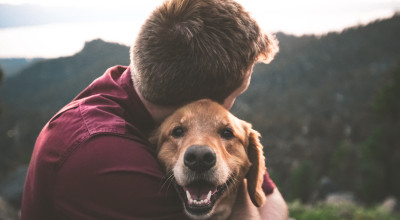Maintaining Sobriety In A Culture That Does Not
May 12th, 2020
We all have a friend or a group of friends who are always suggesting to go out drinking, or grab some beer on the way over. We all have a friend who asks, “you aren’t getting a drink?” at a new restaurant you’re trying out together. It’s not uncommon for friends to get together and be drinking the entire time.
Then there’s you. Or maybe it’s even one of your friends or family members. You’ve been trying to stay sober or reduce your alcohol intake for some time now and you’re finding it difficult to relate to your friends. You’re worried they might think you’re lame or uncool for sitting out from drinking, despite knowing that this has been a struggle for you. Even your more empathetic and understanding friends don’t seem to fully interpret what you’re trying to control when you don’t buy your usual rum and coke at the bar.
A Culture of Drinking
Modern social culture romanticizes drinking. We believe parties only get good when everybody is wasted. All the coolest writers, artists, and actors abuse drugs and alcohol to debilitating points and are hailed for being martyrs of art that are just too complicated to understand. We even become concerned for our friends who choose not to drink for any given reason.
For someone in recovery of alcoholism, this culture is completely counter-intuitive to staying clean and sober. The pursuit of sobriety for someone who needs it should be something that is celebrated, not questioned. Yet it is not uncommon for people going to Alcoholics Anonymous meetings to feel shame or hide it from their friends and loved ones.
In order to move forward, there is a level of acceptance and change that you have to find. Social pressure will be present when you’re with your friends, and that’s something you’ll have to fight constantly. Unless your friend group is also sober, social drinking will always be an uphill battle.
A Culture of Shaming
Not only do we encourage getting drunk and binge drinking, there is a stigma behind admission of addiction. To talk about addiction to drugs, alcohol, or just about anything we view as detrimental is a sign of weakness. Getting help is only for those who truly cannot control themselves, and are incapable of taking responsibility to take care of themselves.
This culture is something we’ve covered in depth in past blogs, so we won’t go into it so much. But this stigma is yet another battle you will have to fight. It is completely okay to need help, and being open about your sobriety is making the recovery struggle for future addicts just a little bit easier. Your willpower means everything.
Alternatives to Suggest to Your Friends
If you’d like to keep up with your old friends who are guilty of trying to find a reason to drink whenever possible, there are subtle ways to push them away from it. If you don’t want to explicitly ask them to refrain from drinking while around you, there are plenty of activities that do not typically involve alcohol.
Some of these activities aren’t necessarily alcohol free, but rather good options for activities that are still plenty of fun without drinking. Drinking can happen at all of these functions, but it’s definitely less likely to occur versus attending the latest happy hour.
Set a date to do some outdoor activities
People do not often drink and hike (that would be exhausting). Go swimming, take a hike somewhere you’ve been meaning to go, or just go hang out at the local park. Bring enough friends along to play a team sport! The cardio will make them sweat out beer faster than they can drink it. People may still find an excuse to bring a few drinks along, but even if they do, chances are they won’t drink too much. If you keep them on their feet, they’re bound to have to slow down a little bit.
Involve pets or children in the next hangout
We know parents and pet owners will probably still want to drink when their kid or dog is involved, but it’s a pretty reliable mitigator of damages. When you go to the bar with your friends, the emphasis is placed on drinking and getting drunk. Having a dog or a child around shifts that emphasis towards your extra furry or tiny guests. At worst, your friends will likely indulge in just one or two glasses of beer or wine and that’s it. If you find that they’re still getting just as wasted as they do when at the bar (especially in the case of a child), maybe it might be time to find some more responsible friends.
Workout with friends
Bring a buddy to the gym, or just bring them over for a jog or walk around your neighborhood. When people are trying to improve their body, typically drinking alcohol is one of the last things that come to mind. Really any activity that involves physical work is one of the best ways to avoid getting booze of any kind involved.
Set a time for creative activities with friends
We talk about this one a lot, but only because we’re really confident it’s a fantastic idea for those in recovery. Invite your friends over for a movie, to paint, or any other creative hobby to get involved in. Activities like that can be a lot more fun with a friend around, especially if you’re new to it! Maybe you have a painter friend who could teach you a thing or two already, all is the better.
In Conclusion
If you want to keep your friends who drink regularly, you will not be able to control them. You’re going to have to deal with questions, concerns, and a general lack of understanding of what you’re trying to do. As long as you’re okay with that and have the willpower to work around it, there’s plenty of ways to reduce the amount of drinking that takes place during regular hangouts.


